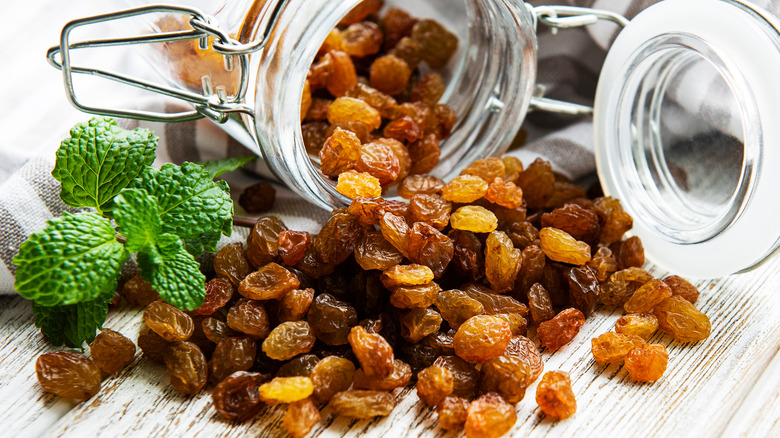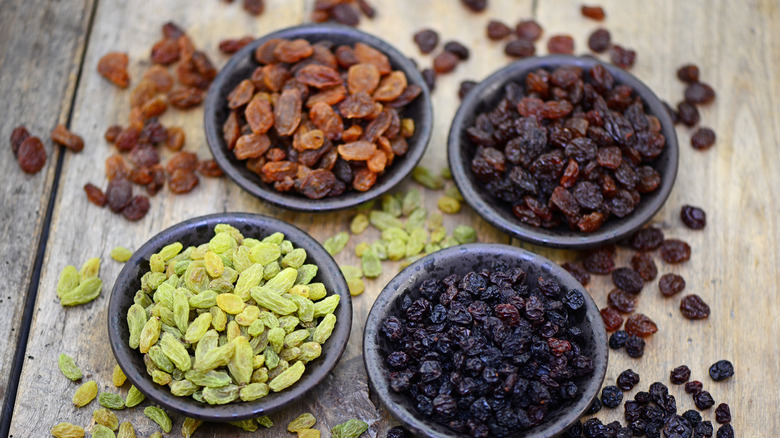Bored Of Regular Raisins? Try Sultanas In Your Oatmeal Cookies
If you're unfamiliar with sultanas, this may be because a) you're in the U.S.; and b) you're not regularly bingeing on "The Great British Baking Show." Still, there's a chance you may have used them in baked goods before (not "bakes," GBBS fans, as this word is a verb in American English). How could this be? Probably because you're familiar with them under the guise of golden raisins, which is what we call them on this side of the Atlantic, while the term sultana is primarily used in the U.K. No matter what name they go by, golden raisins are a less common choice for oatmeal raisin cookies since these typically feature the regular brown kind.
As for why you might want to switch up your raisin colors when baking oatmeal cookies, the golden ones are softer, sweeter, and, well, less raisin-y, so they may make the cookies appeal more to reluctant raisin eaters. What's more, if you're trying to sneak raisins past dried fruit haters, sultanas' paler shade probably makes them less easy to spot and pick out of the cookies. Finally, another major benefit of going with golden raisins is that they do not in any way resemble chocolate chips — few things in life are quite as disappointing as biting into what you thought was an oatmeal chocolate chip cookie only to find out those chips are actually raisins, instead.
Same grapes, different process
Golden raisins, aka sultanas, may be made from a grape variety called sultana, but this isn't always the case. They are also likely to be made from Thompson seedless grapes, the same variety that most raisins are made from. The main difference between sultanas and brown raisins lies in how they are produced.
Brown raisins are typically sun-dried, a process that may take several weeks. Sultanas, however, are placed in mechanical dehydrators where both the temperature and humidity are kept at optimum levels. This allows them to dry much quicker — just 24 hours is all the time it takes. An antioxidant known as sulfur dioxide is also used to help the raisins retain their golden color. While sultanas may be marginally more nutritious due to the extra antioxidants they contain, sulfur dioxide can cause allergic reactions in some people so that's something to be aware of before you start swapping out regular raisins for their lighter-colored cousins.

